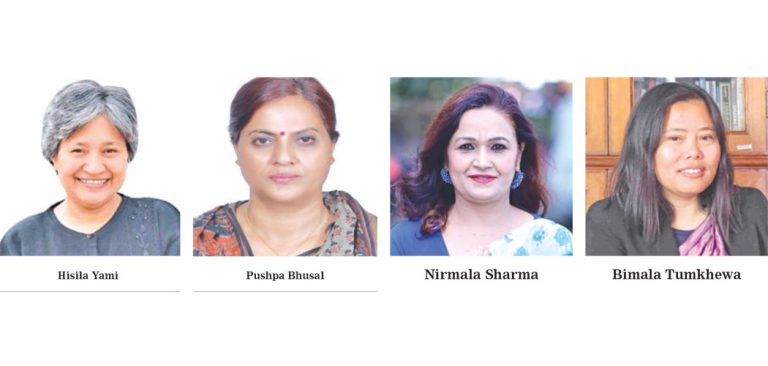As the world celebrates International Women’s Day (IWD) on Saturday, Nepal joins the movement with a strong focus on gender equality and empowerment. Under the theme “For All Women and Girls: Rights. Equality. Empowerment,” various programs and discussions are being organized nationwide to highlight the progress and challenges Nepali women continue to face.
Progress in Women’s Empowerment
Nepal has made significant strides in women’s empowerment, particularly after the 2006 political movement. The country’s Constitution has introduced key provisions ensuring equal rights for women. Over the past decade, women have risen to leadership positions, including the President, Speaker, and Chief Justice. Additionally, the Constitution mandates 33% representation of women in all political bodies, including Parliament, marking a milestone in political inclusion.
Despite these legal advancements, experts and political figures highlight that challenges persist in implementing gender equality effectively.
Women’s Rights and Political Challenges
Hisila Yami, former minister and politician, believes that while women were significantly empowered during Nepal’s political movements, their status is now declining due to economic stagnation.
“Women’s political rights were established through movements, but their economic empowerment remains weak. As right-wing ideologies gain momentum globally, inclusivity is decreasing,” said Yami.
She emphasized that despite technological advancements proving women’s capabilities in all fields, societal norms, religion, and culture continue to restrict women’s participation in public life. “Our society still expects women to remain confined to household roles. To eliminate discrimination, leadership must enact and enforce adequate laws,” she added.
Implementation Gaps in Women’s Participation
Pushpa Bhusal, Nepali Congress Central Committee Member and former Deputy Speaker, acknowledged that while legal provisions support women’s participation, implementation remains weak.
“The Constitution ensures quotas for women at all three levels of government, but their social, political, and economic participation still does not align with these policies,” said Bhusal. She called for stronger policy frameworks to ensure women’s access to the development sector and decision-making roles in politics and the economy.
Challenges in Leadership and Workplace
Nirmala Sharma, President of the Federation of Nepalese Journalists, noted that while laws for women’s empowerment exist, execution remains a challenge.
“Women are progressing, but empowerment alone is not enough. Society still struggles to recognize women as leaders and change-makers,” Sharma explained.
According to her, simply having 33% women’s participation in governance is insufficient. To create meaningful change, political parties and institutions must go beyond policy implementation and actively promote awareness campaigns emphasizing the importance of women’s leadership.
Sharma also pointed out that many women in leadership roles face a double burden of balancing professional responsibilities with household duties. “Without a proper support system, women continue to struggle with managing careers while shouldering the full responsibility of domestic work,” she said.
The Road Ahead for Nepali Women
Bimala Tumkhewa, President of Sancharika Samuha, believes that while women’s participation in leadership has increased, it remains insufficient to drive transformative change.
“With 40% women’s representation at the local level and 33% at the provincial and federal levels, progress is happening. However, a truly empowered society requires more than just numbers. We need systemic changes to create a more inclusive environment,” she said.
She emphasized that economic independence, access to education, and policy implementation are crucial for sustaining long-term gender equality in Nepal.
Strengthening Women’s Empowerment in Nepal
As Nepal observes International Women’s Day, experts and leaders stress the urgency of translating legal provisions into real-world impact. Beyond legislative reforms, empowering women requires economic opportunities, cultural transformation, and social support systems that allow them to thrive in leadership roles.
To foster true gender equality, Nepal must prioritize the implementation of policies, increase awareness, and build inclusive structures that support women in all spheres of life. Without active enforcement and societal change, achieving genuine women’s empowerment remains a challenge.
For more insights on Nepal’s gender policies and ongoing initiatives, visit Nepal Monitor.


